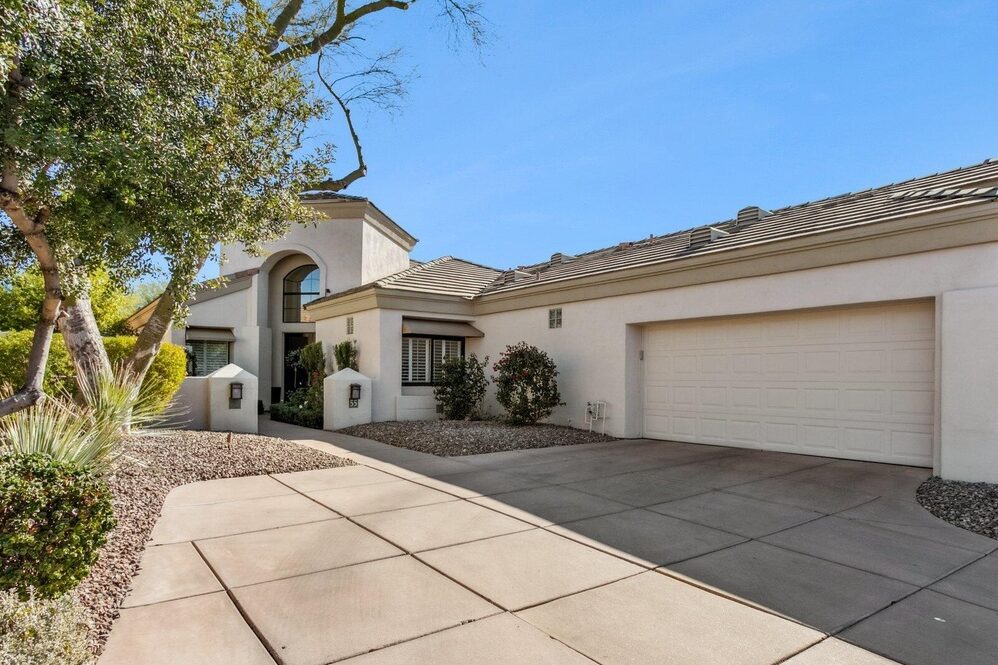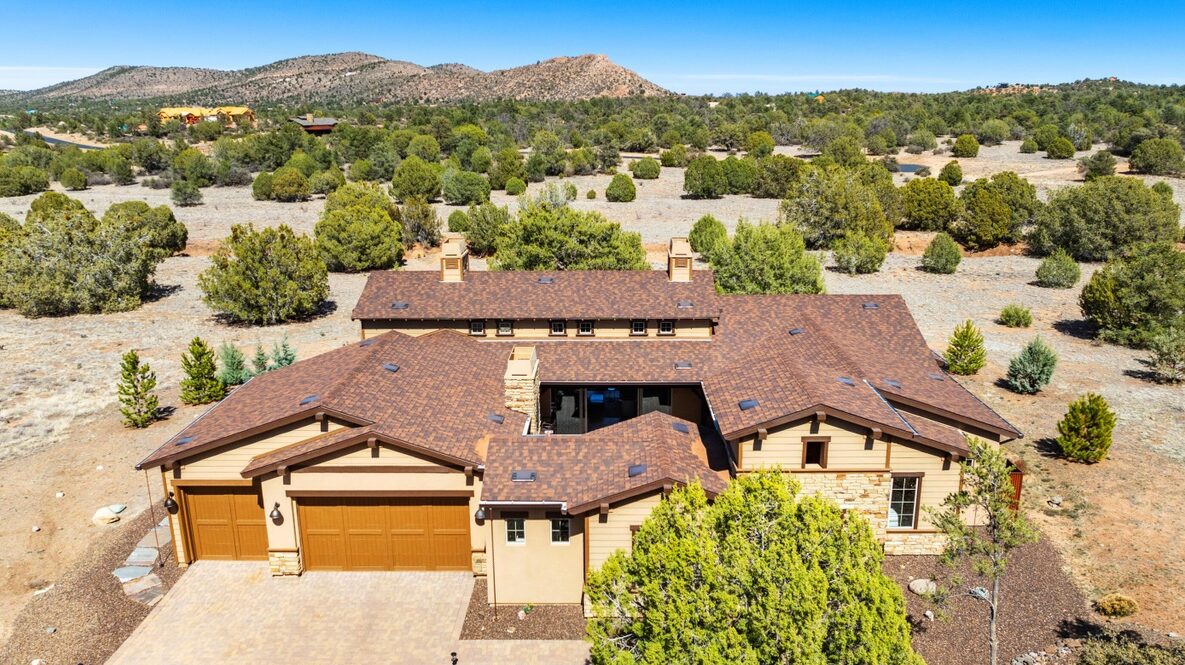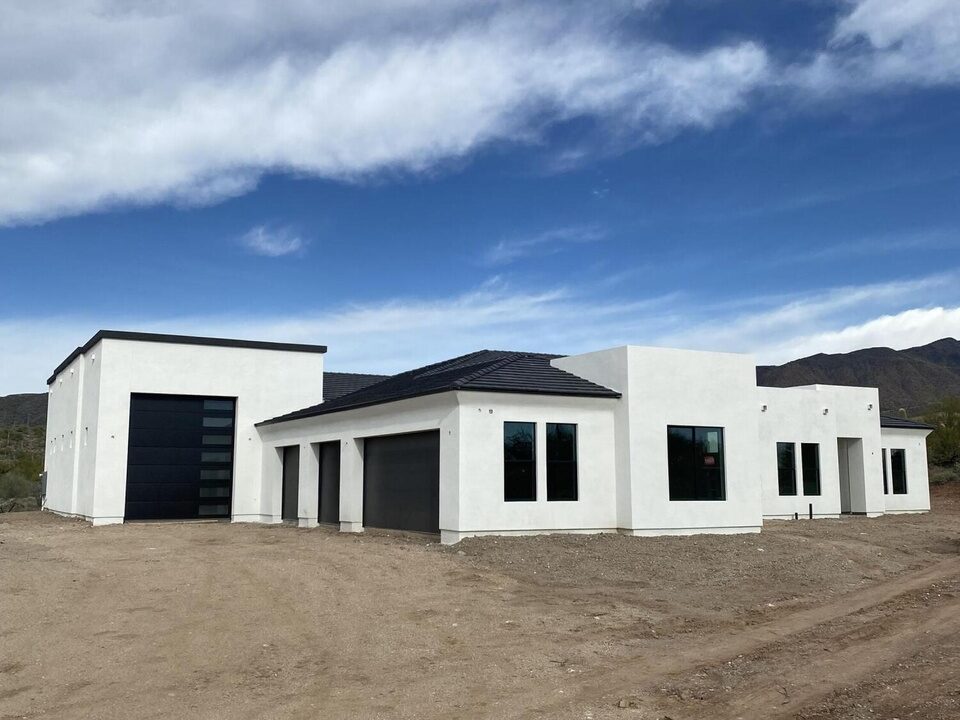The RealTrends Verified Rankings honor the top 1.5% of real estate professionals in the United States, based on fully verified residential sales data from the previous calendar year. Rankings are determined by both transaction sides and sales volume for single-family homes and condominiums, ensuring a transparent and credible evaluation.
We are thrilled to announce that several of our outstanding Russ Lyon Sotheby’s International Realty advisors have earned a spot in the esteemed 2025 RealTrends Verified Rankings, a national benchmark of excellence in the real estate industry.
Meet Our 2025 Honorees
We are thrilled to celebrate the following RLSIR advisors who earned a place in this year’s RealTrends Verified Rankings:
| Category | State Ranking | Name |
| Individual Agents by Volume | 12 | Dan Wolski |
| Individual Agents by Volume | 15 | Allan MacDonald |
| Individual Agents by Volume | 16 | Lisa Roberts |
| Individual Agents by Volume | 19 | Cheryl D’Anna |
| Individual Agents by Volume | 21 | Patrick Rice |
| Individual Agents by Volume | 23 | Jennifer Schumacher |
| Individual Agents by Volume | 26 | Josie Pakula |
| Individual Agents by Volume | 32 | Lonnie Lopez |
| Individual Agents by Volume | 43 | Cionne McCarthy |
| Individual Agents by Volume | 44 | Johnathon De Young |
| Individual Agents by Volume | 72 | Marta Harvey |
| Individual Agents by Volume | 73 | Hans Horchler |
| Individual Agents by Volume | 77 | Virginia Gee |
| Individual Agents by Volume | 79 | Katrin Themlitz |
| Individual Agents by Volume | 81 | Gary Brasher |
| Individual Agents by Volume | 82 | Jacqui Firestone |
| Individual Agents by Volume | 91 | Jenna Jacques |
| Individual Agents by Volume | 96 | Kathleen Lane |
| Individual Agents by Volume | 112 | Blake Cain |
| Individual Agents by Volume | 121 | Laura Briggs |
| Individual Agents by Volume | 122 | Robin Kaiserman |
| Individual Agents by Volume | 123 | Cindi Dewine |
| Individual Agents by Volume | 127 | Jan Lux |
| Individual Agents by Volume | 128 | Joanie Barreiro |
| Individual Agents by Volume | 135 | Shawn Chappel |
| Individual Agents by Volume | 138 | Cheryl Anderson |
| Individual Agents by Volume | 162 | Jill Anderson |
| Individual Agents by Volume | 166 | Bev Wasson |
| Individual Agents by Volume | 168 | Sue Shapiro |
| Individual Agents by Volume | 184 | Monty Cooper |
| Individual Agents by Volume | 188 | Stephanie Anderson |
| Individual Agents by Volume | 212 | Michelle Renteria |
| Individual Agents by Volume | 234 | Oriana Lehman Wood |
| Individual Agents by Volume | 239 | Gila Hager-Sherman |
| Individual Agents by Volume | 246 | Jenny Leahy |
| Individual Agents by Volume | 253 | Carol Spencer |
| Individual Agents by Volume | 263 | Marie France Dagenais |
| Individual Agents by Volume | 271 | Chris Tiller |
| Individual Agents by Volume | 274 | Laura Jorden |
| Individual Agents by Volume | 285 | Michelle Glenn |
| Individual Agents by Volume | 310 | Thalia Kyriakis |
| Individual Agents by Volume | 317 | Linda A. Wood |
| Individual Agents by Volume | 318 | Laura Spaeth |
| Individual Agents by Volume | 319 | Stacie Neumann |
| Individual Agents by Volume | 322 | Judy Lemarr |
| Individual Agents by Volume | 329 | Jim French |
| Individual Agents by Volume | 340 | Christine Anthony |
| Individual Agents by Volume | 341 | John Pryor |
| Individual Agents by Volume | 345 | Marianna Shone |
| Individual Agents by Volume | 351 | Ranee Jacobus |
| Individual Agents by Volume | 366 | Mary Wolf-Breen |
| Individual Agents by Volume | 371 | Sierra Allegretto |
| Individual Agents by Volume | 382 | Melissa Kalinowski |
| Individual Agents by Volume | 386 | Brian Miller |
| Individual Agents by Volume | 389 | Peter Zaidan |
| Individual Agents by Volume | 400 | Joyce Lynch |
| Individual Agents by Volume | 411 | Danny Baker |
| Individual Agents by Volume | 420 | Janelle Flaherty |
| Individual Agents by Volume | 437 | Molly Auman |
| Individual Agents by Volume | 440 | Matt Huff |
| Individual Agents by Volume | 461 | Paige McCargar |
| Individual Agents by Volume | 469 | Michael Williamson |
| Individual Agents by Volume | 470 | Amy Antalik |
| Individual Agents by Volume | 483 | Lesley Vann |
| Individual Agents by Volume | 490 | Kymberly Clark |
| Individual Agents by Volume | 493 | Trina Painter |
| Individual Agents by Volume | 496 | Barbara Miller |
| Individual Agents by Volume | 546 | Jessica Schaefer |
| Individual Agents by Volume | 549 | Kim Weber |
| Individual Agents by Volume | 551 | Jean Grimes |
| Individual Agents by Volume | 554 | Katie Williams |
| Individual Agents by Volume | 555 | Anthony Guerriero |
| Individual Agents by Volume | 562 | Racquel Miller |
| Individual Agents by Volume | 569 | Tim Hundelt |
| Individual Agents by Volume | 575 | Joy Dorvinen |
| Individual Agents by Sides | 52 | Lisa Roberts |
| Individual Agents by Sides | 81 | Jennifer Schumacher |
| Individual Agents by Sides | 83 | Gary Brasher |
| Individual Agents by Sides | 125 | Josie Pakula |
| Individual Agents by Sides | 214 | Marta Harvey |
| Individual Agents by Sides | 215 | Dan Wolski |
| Individual Agents by Sides | 216 | Allan MacDonald |
| Individual Agents by Sides | 242 | Jenna Jacques |
| Individual Agents by Sides | 261 | Monty Cooper |
| Individual Agents by Sides | 284 | Anthony Guerriero |
| Individual Agents by Sides | Honorable Mention | Jill Anderson |
| Individual Agents by Sides | Honorable Mention | Cindi Dewine |
| Individual Agents by Sides | Honorable Mention | Blake Cain |
| Individual Agents by Sides | Honorable Mention | Stacie Neumann |
| Individual Agents by Sides | Honorable Mention | Amy Antalik |
| Individual Agents by Sides | Honorable Mention | Jacqui Firestone |
| Individual Agents by Sides | Honorable Mention | Chris Tiller |
| Individual Agents by Sides | Honorable Mention | Jean Grimes |
| Individual Agents by Sides | Honorable Mention | Mary Wolf-Breen |
| Individual Agents by Sides | Honorable Mention | Patrick Rice |
| Individual Agents by Sides | Honorable Mention | Robin Kaiserman |
| Individual Agents by Sides | Honorable Mention | Michelle Renteria |
| Individual Agents by Sides | Honorable Mention | Molly Auman |
| Individual Agents by Sides | Honorable Mention | Cheryl D’Anna |
| Individual Agents by Sides | Honorable Mention | Laura Spaeth |
| Individual Agents by Sides | Honorable Mention | Lonnie Lopez |
| Individual Agents by Sides | Honorable Mention | John Pryor |
| Individual Agents by Sides | Honorable Mention | Kim Weber |
| Individual Agents by Sides | Honorable Mention | Laura Jorden |
| Individual Agents by Sides | Honorable Mention | Oriana Lehman Wood |
| Individual Agents by Sides | Honorable Mention | Matt Huff |
| Individual Agents by Sides | Honorable Mention | Paige McCargar |
| Individual Agents by Sides | Honorable Mention | Marie France Dagenais |
| Individual Agents by Sides | Honorable Mention | Hans Horchler |
| Individual Agents by Sides | Honorable Mention | Danny Baker |
| Individual Agents by Sides | Honorable Mention | Thalia Kyriakis |
| Individual Agents by Sides | Honorable Mention | Stephanie Anderson |
| Individual Agents by Sides | Honorable Mention | Janelle Flaherty |
| Individual Agents by Sides | Honorable Mention | Johnathon De Young |
| Individual Agents by Sides | Honorable Mention | Marianna Shone |
| Individual Agents by Sides | Honorable Mention | Linda A. Wood |
| Individual Agents by Sides | Honorable Mention | Kathleen Lane |
| Individual Agents by Sides | Honorable Mention | Christine Anthony |
| Individual Agents by Sides | Honorable Mention | Katrin Themlitz |
| Individual Agents by Sides | Honorable Mention | Melissa Kalinowski |
| Individual Agents by Sides | Honorable Mention | Trina Painter |
| Individual Agents by Sides | Honorable Mention | Judy Lemarr |
| Individual Agents by Sides | Honorable Mention | Sierra Allegretto |
| Individual Agents by Sides | Honorable Mention | Virginia Gee |
| Individual Agents by Sides | Honorable Mention | Jessica Schaefer |
| Individual Agents by Sides | Honorable Mention | Jim French |
| Individual Agents by Sides | Honorable Mention | Laura Briggs |
| Individual Agents by Sides | Honorable Mention | Michelle Glenn |
| Individual Agents by Sides | Honorable Mention | Cionne McCarthy |
| Individual Agents by Sides | Honorable Mention | Joanie Barreiro |
| Individual Agents by Sides | Honorable Mention | Tim Hundelt |
| Individual Agents by Sides | Honorable Mention | Lesley Vann |
| Individual Agents by Sides | Honorable Mention | Carol Spencer |
| Individual Agents by Sides | Honorable Mention | Kymberly Clark |
| Individual Agents by Sides | Honorable Mention | Michael Williamson |
| Individual Agents by Sides | Honorable Mention | Joyce Lynch |
| Individual Agents by Sides | Honorable Mention | Jenny Leahy |
| Individual Agents by Sides | Honorable Mention | Shawn Chappel |
| Individual Agents by Sides | Honorable Mention | Gila Hager-Sherman |
| Individual Agents by Sides | Honorable Mention | Katie Williams |
| Individual Agents by Sides | Honorable Mention | Bev Wasson |
| Individual Agents by Sides | Honorable Mention | Brian Miller |
| Individual Agents by Sides | Honorable Mention | Sue Shapiro |
| Individual Agents by Sides | Honorable Mention | Racquel Miller |
| Individual Agents by Sides | Honorable Mention | Barbara Miller |
| Individual Agents by Sides | Honorable Mention | Peter Zaidan |
| Individual Agents by Sides | Honorable Mention | Ranee Jacobus |
| Individual Agents by Sides | Honorable Mention | Cheryl Anderson |
| Individual Agents by Sides | Honorable Mention | Joy Dorvinen |
| Individual Agents by Sides | Honorable Mention | Jan Lux |
| Medium Teams by Volume | 1 | Luxury Property Group |
| Medium Teams by Volume | 2 | Power + |
| Medium Teams by Volume | 3 | The Luckys |
| Medium Teams by Volume | 6 | The Marshall Brothers |
| Medium Teams by Volume | 7 | Agent DA Team |
| Medium Teams by Volume | 8 | Conser & Surges Partners |
| Medium Teams by Volume | 11 | Bushong Christian Almquist |
| Medium Teams by Volume | 13 | Live Carefree |
| Medium Teams by Volume | 17 | Sertich Group |
| Medium Teams by Volume | 23 | P2Crew |
| Medium Teams by Volume | 27 | Reisdorf Metz & Partners |
| Medium Teams by Volume | 32 | Grogan & Grogan |
| Medium Teams by Volume | 33 | Prather Home Team |
| Medium Teams by Volume | 45 | DeGeorge Partners |
| Medium Teams by Volume | 52 | Marta Harvey |
| Medium Teams by Volume | 58 | Tami Henderson Group |
| Medium Teams by Volume | 61 | Jablonski Group |
| Medium Teams by Volume | 62 | Judy Smedes & Kate Herk |
| Medium Teams by Volume | 64 | Sinagoga & LaCroix |
| Medium Teams by Volume | 65 | Jean Michel & Associates |
| Medium Teams by Volume | 68 | Pennington Luxury Group |
| Medium Teams by Volume | 69 | Tierney & Lococo |
| Medium Teams by Volume | 74 | The Krolanders |
| Medium Teams by Volume | 77 | Luxury Concierge Partners |
| Medium Teams by Volume | 78 | Marilyn Cummings |
| Medium Teams by Volume | 88 | The Van Dyke Team |
| Medium Teams by Volume | 89 | Reeds & Vandi |
| Medium Teams by Volume | 97 | The Wolffs |
| Medium Teams by Volume | 100 | The Team with More* |
| Medium Teams by Volume | 101 | Sedona Luxury Properties |
| Medium Teams by Volume | 116 | Wilkins Team |
| Medium Teams by Volume | 117 | Mowzoon & Gilbert |
| Medium Teams by Volume | 119 | Team Reiland |
| Medium Teams by Volume | 131 | Van Patten Luxury Group |
| Medium Teams by Volume | 133 | Craig Bennett Group |
| Medium Teams by Volume | 135 | Valerie Core & Freddi Paulsrud |
| Medium Teams by Volume | 150 | Carefree Property Group |
| Medium Teams by Volume | 151 | Homanity Team |
| Medium Teams by Sides | 25 | The Luckys |
| Medium Teams by Sides | 26 | Agent DA Team |
| Medium Teams by Sides | 28 | Prather Home Team |
| Medium Teams by Sides | 50 | Luxury Property Group |
| Medium Teams by Sides | 73 | Team Reiland |
| Medium Teams by Sides | Honorable Mention | Tierney & Lococo |
| Medium Teams by Sides | Honorable Mention | DeGeorge Partners |
| Medium Teams by Sides | Honorable Mention | Live Carefree |
| Medium Teams by Sides | Honorable Mention | Grogan & Grogan |
| Medium Teams by Sides | Honorable Mention | Power + |
| Medium Teams by Sides | Honorable Mention | Marta Harvey |
| Medium Teams by Sides | Honorable Mention | The Van Dyke Team |
| Medium Teams by Sides | Honorable Mention | Judy Smedes & Kate Herk |
| Medium Teams by Sides | Honorable Mention | Marilyn Cummings |
| Medium Teams by Sides | Honorable Mention | Sertich Group |
| Medium Teams by Sides | Honorable Mention | Bushong Christian Almquist |
| Medium Teams by Sides | Honorable Mention | The Marshall Brothers |
| Medium Teams by Sides | Honorable Mention | Craig Bennett Group |
| Medium Teams by Sides | Honorable Mention | Mowzoon & Gilbert |
| Medium Teams by Sides | Honorable Mention | Reisdorf Metz & Partners |
| Medium Teams by Sides | Honorable Mention | Sedona Luxury Properties |
| Medium Teams by Sides | Honorable Mention | Valerie Core & Freddi Paulsrud |
| Medium Teams by Sides | Honorable Mention | Pennington Luxury Group |
| Medium Teams by Sides | Honorable Mention | Jablonski Group |
| Medium Teams by Sides | Honorable Mention | Conser & Surges Partners |
| Medium Teams by Sides | Honorable Mention | Sinagoga & LaCroix |
| Medium Teams by Sides | Honorable Mention | P2Crew |
| Medium Teams by Sides | Honorable Mention | Jean Michel & Associates |
| Medium Teams by Sides | Honorable Mention | Wilkins Team |
| Medium Teams by Sides | Honorable Mention | Van Patten Luxury Group |
| Medium Teams by Sides | Honorable Mention | Homanity Team |
| Medium Teams by Sides | Honorable Mention | Carefree Property Group |
| Medium Teams by Sides | Honorable Mention | Tami Henderson Group |
| Medium Teams by Sides | Honorable Mention | The Wolffs |
| Medium Teams by Sides | Honorable Mention | Luxury Concierge Partners |
| Medium Teams by Sides | Honorable Mention | The Krolanders of Desert Mountain |
| Medium Teams by Sides | Honorable Mention | Reeds & Vandi |
| Medium Teams by Sides | Honorable Mention | The Team with More |
| Medium Teams by Volume | 2 | Private Client Group |
| Medium Teams by Sides | 20 | Private Client Group |
Their achievements represent not only individual success but also the collective excellence of our entire organization. These advisors continue to raise the bar and set new standards in the Arizona luxury market and beyond.
Congratulations to All
To our honorees—congratulations. Your hard work, integrity, and service excellence have not gone unnoticed. Thank you for representing the best of Russ Lyon Sotheby’s International Realty.






























